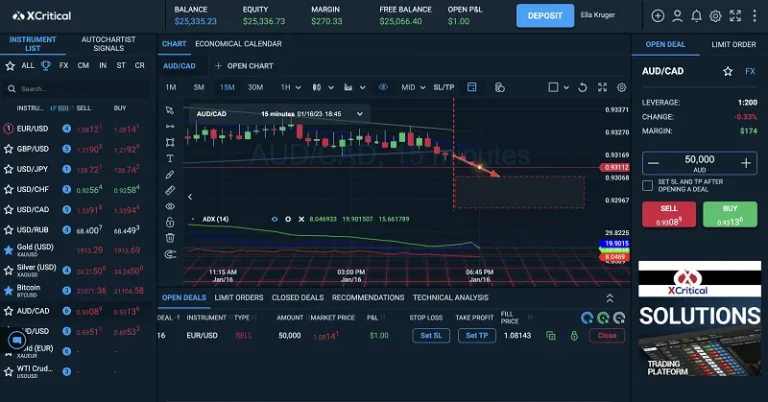The benefit of using a margin account is that you get to keep the profits from your additional shares if the stock goes up in price. The risk is that you’ll have to take losses if the stock goes down in price. Investors need to determine if they want to open a brokerage account beyond the work of saving for retirement through an IRA, 401(k), or some other tax-advantaged account.
Or, maybe, you lack the time or inclination to carry out market research and identify suitable trading opportunities. In both cases, a full-service broker that offers educational resources and in-depth research insights would be better suited to your needs. While full-service brokers provide a whole catalogue of services, discount brokers focus on the basics. Discount brokers carry out buy and sell orders for their clients but do not offer any additional services. In some cases, the charge may be as low as Rs 10 per transaction. A brokerage firm or brokerage company is a middleman who connects buyers and sellers to complete a transaction for stock shares, bonds, options, and other financial instruments.
A margin account is a type of brokerage account that allows traders to borrow money from their broker to trade securities. Brokerages make money in a number of ways, and commissions aren’t the number one money maker for the majority of stock brokers. Instead, most brokerages make the majority of their money by earning interest on the money you park in your brokerage account. Payment from order flow can also be a significant revenue driver, particularly for zero-commission brokerages like Robinhood.
If you need to learn which countries IQ option is available, we have a list right here. Wealthy customers who trade frequently might save more with a premium account offering superior order execution than they do with commission-free trading. If you execute a high volume of trades, it may seem like you spend a lot in commissions, although commissions represent a relatively small portion of brokerages’ earnings. While the average stockbroker may make between $100,000 and $150,000 per year, the majority of that money comes from commissions earned when trading on behalf of customers. You can only learn to thrive under the intense pressure of meeting accelerated sales goals.
If you have the time and inclination you will be your own best adviser, not least because only you really know your attitude to risk. Normally, any gift that’s larger than the annual gift exclusion limit — which is currently $17,000 per recipient — would require filing a gift tax return. Gift taxes aren’t due, however, until the amount given away over the annual limits exceeds the lifetime gift and estate exemption limit (which is currently $12.92 million). Clearly, someone has to be quite wealthy, and quite generous, before gift taxes are a concern.
How to remove your data from companies, data brokers for free – The Washington Post
How to remove your data from companies, data brokers for free.
Posted: Tue, 03 Oct 2023 13:00:00 GMT [source]
These people act as go-betweens in investing, earning commissions whenever a client buys security. If you’re thinking about a career as a stock broker or brokerage transaction fees need to recruit one, it helps to keep in mind that stock brokers are salespeople. Each day, stockbrokers in the United States make numerous transactions.
Brokers make money through fees and commissions charged to perform every action on their platform such as placing a trade. Other brokers make money by marking up the prices of the assets they allow you to trade or by betting against traders in order to keep their losses. The brokerage may give you the option to manage the account on your own, or you may want to set up accounts at a new, less expensive discount brokerage.
- Disclosure documents revealed other profit sources, including margin lending, monthly fees for upgraded services, and rehypothecation.
- If you have an account that you haven’t used in a while, it’s a good idea to go and withdraw the funds that are left in the account.
- Zero commission stock brokers generate revenue by using an order flow arrangement.
- Ranking list of the 5 best United Arab Emirates (UAE) Stock brokers, comparing trustworthiness, capabilities, fees and legitimacy versus each other.
- To comprehend how stock brokers actually operate and what they accomplish beyond placing transactions, it is necessary to determine how they make money.
As discussed above, commissions are actually a minor source of revenue for most brokerages. Thus, the business plan of zero-commission brokerages like Robinhood and Webull doesn’t seem so crazy. Instead, Robinhood and Webull make money through interest income and payments for order flow. Stock brokers, whether firms or individuals, are essentially middlemen.

The moment they receive an order it gets sent into a massive network (the ECN) where several market participants are linked and compete for buying and selling. Straight Through processing brokers have a NO-Dealing Desk model. The moment they receive your order it gets sent immediately to another broker that is providing the liquidity. They are the ones making the market by quoting the buy and sell prices and providing liquidity (the availability on an asset). Brokers match buyers with sellers, complete the transaction between the two parties, and pocket a fee for their service.
Advisers will also accommodate any declared short-term requirements for money, possibly by using liquid assets such as cash. For example, when a trading order is executed for a stock, a buyer charges a transaction fee for the efforts made by the brokerage firm to complete the sale. Overnight fees are most common if you’re trading using leveraged products, like CFDs. If you choose to trade with us, you’ll only incur overnight fees on spot trades, and not on futures contracts – although these will have a larger spread. Back when stock exchanges were a physical venue, brokerage firms represented their clients on the exchange floor.
You’re not forced into paying fees simply for using the base functionality of the platform. M1 Finance charges no fees, no commissions, and no management fees. Smaller platforms like SoFi Invest have also replicated this business model, and even traditional brokers have been forced to reduce their fees in response. Robinhood makes about half of its revenue through interest income, similar to other discount brokerages. However, the fraction of income from payments for order flow is significantly higher – around 40% of total revenue. The remaining 10% of revenue comes primarily through fees for the premium Robinhood Gold service and fees for orders placed outside the Robinhood app.
In sum, if your brokerage is commission-free, odds are it really is not. It could result in a fractionally worse fill price on your trade than if it was submitted directly to the exchange. Yet, the brokers have another tool to scrape a bit more money from you. In general, try to avoid brokers that will lend out your shares with no compensation. Generally speaking, the securities lending that firms do is not very risky. Some brokers will pay a nominal amount of interest, though it will undoubtedly be below what they are making themselves.
Remember that every positive and negative stimulus to the market is already factored into share prices. Looking after your investments can be a daunting job, but done well it is very satisfying. The big decision is whether to do it yourself or entrust the task to someone else.

